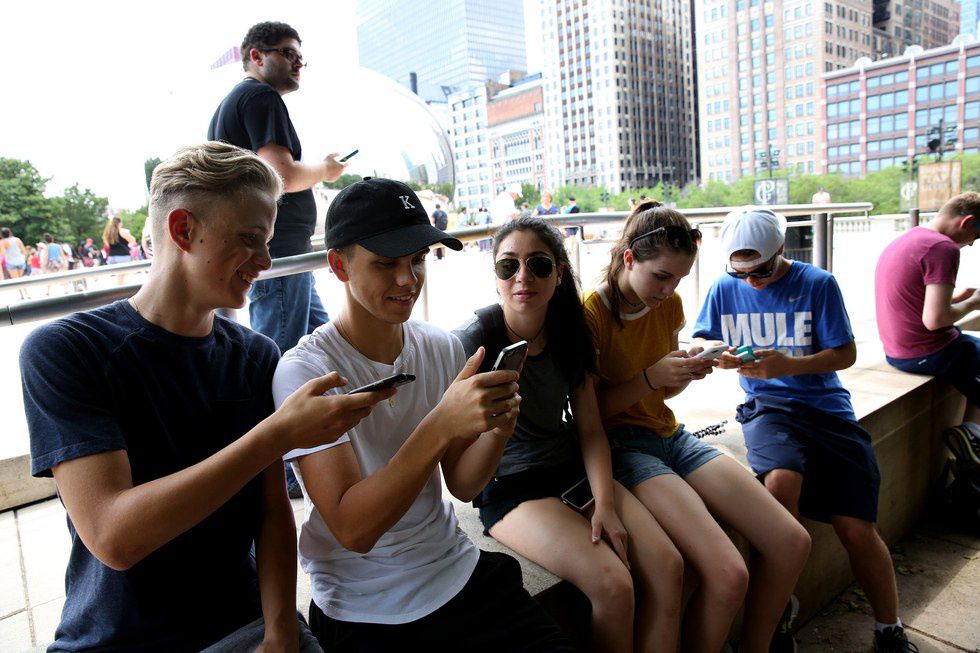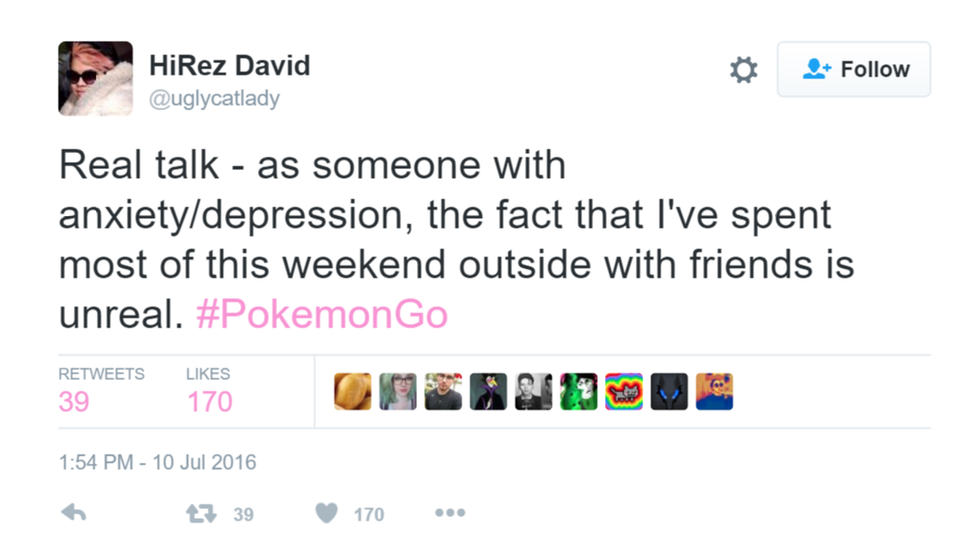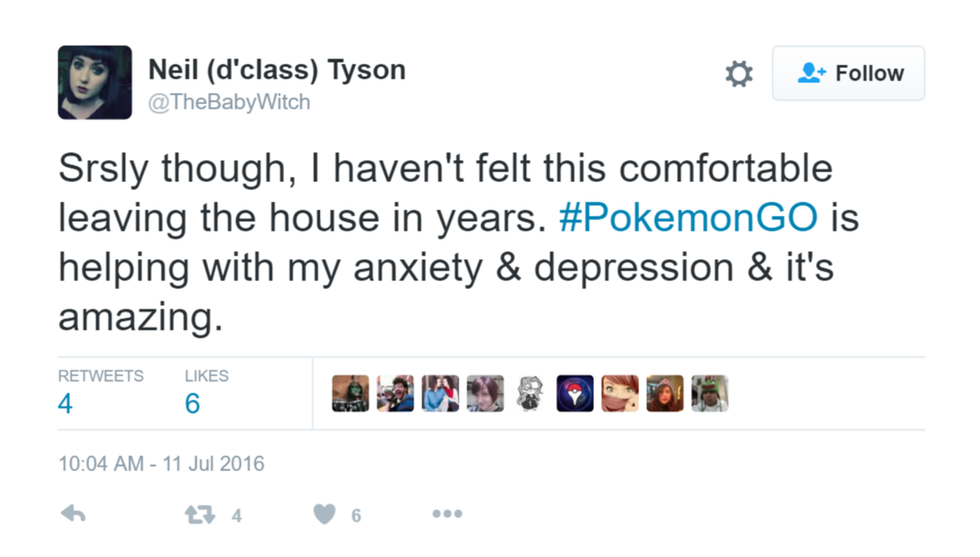Over the past couple of weeks, you may have noticed that people—both young and old—have been staring at their phones more than usual. This phenomenon is most likely the result of the release of the smartphone app Pokémon GO. If you haven't heard of this game yet, you must be living underground with no human contact. It's the only explanation. Pokémon GO has impressively reached an over 15 million downloads in the U.S. in just two weeks.
People of all ages, from kids to college students to adults, are enjoying the game and trying to "Catch 'em all," but some critics of the game find it dangerous and distracting. From concerns about privacy, to injuries, trespassing worries, and even concerns of death, critics of Pokémon GO fear the worst from the game. However, many players say that these worries have less to do with the game and more to do with the personal and spatial awareness of the players.
Regardless of the concerns of personal safety, Pokémon GO has had many positive effects on players suffering from mental health issues like depression and anxiety. The game encourages players to go outside and walk around in order to find a greater variety of Pokémon. There are also stations called Pokéstops where players can find items like Pokéballs to catch more Pokémon and Pokémon Eggs that can be hatched. It is at these Pokéstops that players can place Lure Modules -items that attract Pokémon to that location for 30 minutes. These Lures can be seen and the benefits applied in other players' games, making these areas hot spots where players of Pokémon GO can meet and socialize.
Psychologists are pointing out the benefits that the game has had on depression and anxiety-striken individuals. Engadget.com reported that one psychologist, Dr. John Grohol, stated "In terms of the phenomena of people expressing the benefits of playing the game to their real-world mental health status, I think that's very unique and it's the first time I've ever seen anything like that." Because technology is such an integral part of our daily lives, it can have drastic impacts on our social and mental health. A huge number of players have reported on Twitter that Pokémon GO has helped them overcome social anxieties and other mental health disorders.
In fact, as a college student myself, I've seen and talked to people this past week that I've never even met just because they were also playing Pokémon GO. We bonded over catching the same Pokémon and compared our collections. I'm usually a naturally introverted person, but I can attest to the fact that the game has helped me to interact with others in a way that I normally wouldn't have.
The game also encourages players to get outside and walk around, forcing them to exercise and get some fresh air and vitamin D—things that are crucial to people with depression. Dr. Grohol also notes this, stating "The research is really, really clear on this, that the more you exercise, the more it would help decrease feelings of depression. It actually works as an anti-depressant and it has a really, pretty strong effect. It's probably one of the most beneficial things a person with depression can do, especially if they're not accessing other types of treatments, such as psychotherapy or medication." Players of the game have to walk to find Pokémon and to hatch eggs, at distances ranging from 2km to 10km.
It's clear that the game has had great impacts on players in very positive ways. Instead of criticizing players of Pokémon GO by making statements like "Get a life" and condescendingly critiquing players for being "too old" to play Pokémon, we should think about the positive side effects of the game and enjoy the way it brings people together, especially in the trying moments we find ourselves in now. Pokémon GO couldn't have been released at a better time, providing a positive social outlet, a way to connect with others, physical and mental stimulation and motivation, and a glimmer of simple joy in players' lives.
























